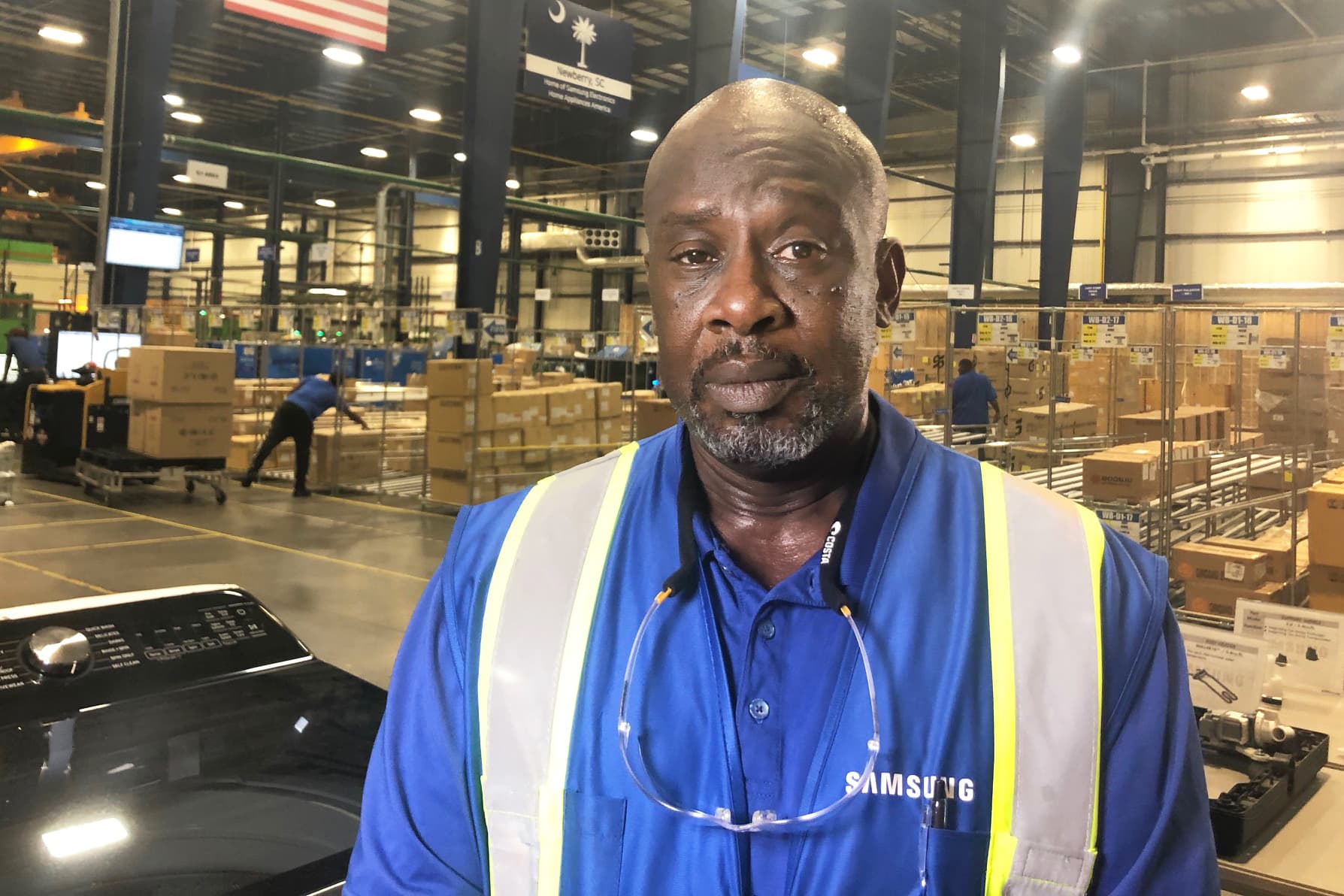
NEWBERRY, S.C. — While concerns about a potential manufacturing slowdown swirl in the face of an ongoing trade war, the sector is facing a bigger and more immediate problem — a growing skills gap that is leaving hundreds of thousands of positions open.
The National Association of Manufacturers said a record 522,000 jobs remained open in the sector in September. The group signed the "Pledge to America's Workers" this summer in conjunction with the Trump administration, committing to training 1.86 million workers in the next five years to address the shortage of skilled workers.
Those workers will be needed in droves. A report published last year by The Manufacturing Institute and Deloitte found that 4.6 million jobs will need to be filled in the sector over the next decade, and 2.4 million jobs may be left open due to a lack of trained workers. The shortage of workers has been the top concern in the industry for the past six quarters, according to NAM's outlook.
"Manufacturers all across the country and every manufacturing sector are facing the hiring challenge," said Carolyn Lee, the institute's director. "They need people with technical skills, with technical aptitude, but with an interest in learning, and continually learning the new technologies that come online."
As baby boomers retire in a tight labor market, Lee said, a major problem in attracting younger workers is the misperception of the work itself. Manufacturing has become more high tech and efficient in recent years. To help solve the issue, manufacturers like Samsung opened their doors on Friday for Manufacturing Day, to invite students to see the work for themselves and potentially generate interest in a career in the sector.
Samsung's 2-year-old plant here employs 800 workers and will need 200 more in the next two years. Entry pay is $13 an hour, and benefits include medical insurance, 401(k) plans and tuition reimbursement, plus opportunities to move up the ladder.
"So we've got a challenge, both short term and long term. Short term, it's at a time of record-low unemployment. How can we find talent for our workforce?" said David Steel, executive vice president of Samsung America. "Outreach is very important to get kids in the future workforce interested in what we're doing in manufacturing."
Rodney Ridley is a supervisor at Samsung's plant in Newberry, South Carolina, where some 200 workers will be needed in the next two years.
Kate Rogers | CNBC
The company has invested upwards of half a billion dollars in the space, Steel said. While tariffs are a short-term headwind, demand is there for products, and the company is planning for the long haul.
Sherri Satterfield, director of human resources at the Newberry plant, said the biggest challenge is in finding workers who are up for the job.
"We're pulling candidates from all over the surrounding counties, and they don't always have that experience," she said. "So it takes them a while to get acclimated to it. Some of them decide that it's not for them, and then other ones they activate, they're here for a good amount of time."
Samsung is working with local colleges and trade schools to attract workers, and looking to recruit more veterans like Rodney Ridley. The 61-year-old Army vet has been in manufacturing for years, watching technology change the way products are made. As a production supervisor, he manages a team of 68. The job is a mix of hard and soft skills, something he hopes to instill in future generations of workers.
"The associates, this is what pays their bills and feeds their families. For me to let them know what's important to them — they need to be here. I need to be on the ground and they are an essential part of my team, for them to do that is an accomplishment to me," Ridley said.
Correction: This article has been updated to correct the number of job openings in the manufacturing sector to 522,000.
0 Comments